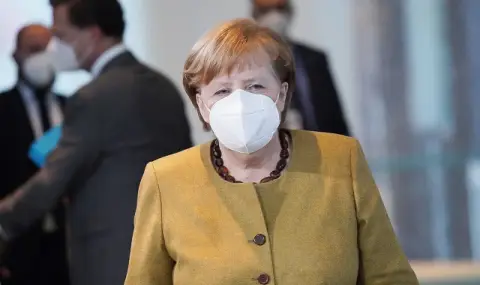"I imagine her sitting quietly at home, white potatoes and watching crime movies on TV,", she wrote recently Robert Habeck for Angela Merkel. Today, the long-serving chancellor turns 70.
A YouGov poll shows that according to 61 percent of Germans, the situation in the country has worsened since the time of Angela Merkel. 28 percent cite the poor governance of the current coalition, which has been leading Germany since December 2021, as the reason. And there are also people who definitely miss her at the head of the cabinet - especially compared to the current chancellor Olaf Scholz and the current chairman of the CDU Friedrich Merz. Only 14 percent of the participants in the poll are of the opinion that Merz would be a better chancellor than Merkel, and with regard to Scholz, 55 percent believe that the former chancellor would handle the crises better than the current chancellor.
Merkel is the first German post-war head of government to voluntarily resign. And today she obviously does not need the public attention. Nevertheless, on her birthday, many think of her and congratulate her - such as President Frank-Walter Steinmeier, for whom she is "an example and emblem of German democracy". He divides her life so far into two halves - the first 35 years before the fall of the Berlin Wall and the second 35 - after. "It has always been important for you to emphasize the value of freedom and an enlightened society," adds the German president.
Her political career began after the fall of the Wall
Angela Merkel originates from the former GDR, graduated in physics and started to engage in politics only after the changes of November 9, 1989. In her memoirs, she recounts how on her 30th birthday in 1984, when her first marriage had just broken up and she had moved into a dilapidated apartment in East Berlin, her father, a pastor by profession, told her instead of greeting: " ;You haven't come very far yet.
In the following years, however, she refuted it: Merkel first became the spokeswoman for the first freely elected prime minister of the GDR, then federal minister of the environment, and then long-term chancellor.
Since her retirement, she has hardly appeared in public with few exceptions - such as a meeting with former US President Barack Obama in Berlin in May 2023. Rumor has it that he is busily writing his memoirs, due out this fall.
Merkel has also alienated herself from her CDU party - since 2021, she has not attended its congresses. Today's deputy leader of the party faction in the Bundestag, Jens Spahn, highlights Merkel's merits, but also points out three of her big mistakes to Focus magazine: mass migration, which "destabilized and overburdened German society", the approach to Putin's Russia and the refusal from nuclear energy.
Was Merkel afraid of decisive moves?
Many in today's governing coalition, which includes the Social Democrats, the Greens and the Liberals, believe that Merkel's rule has been characterized by the Germans' position to impose as few changes as possible. And now the lack of reforms must be caught up very quickly, including in terms of digitalisation, the energy transition and the shortage of qualified personnel. And in a world of increasingly threatening nationalism, the country must quickly learn to defend itself, including militarily.
But even Merkel's political rivals, such as Deputy Prime Minister Robert Habeck of the Green Party, still have plenty of good words to say about the woman who led Germany through the financial and euro crisis, as well as the pandemic. Trying to compliment Merkel on her complete lack of vanity, Habeck wrote the following in June in the German edition of Rolling Stone magazine: "I imagine her sitting quietly at home, white potatoes and watching crime movies on TV."< /p>
